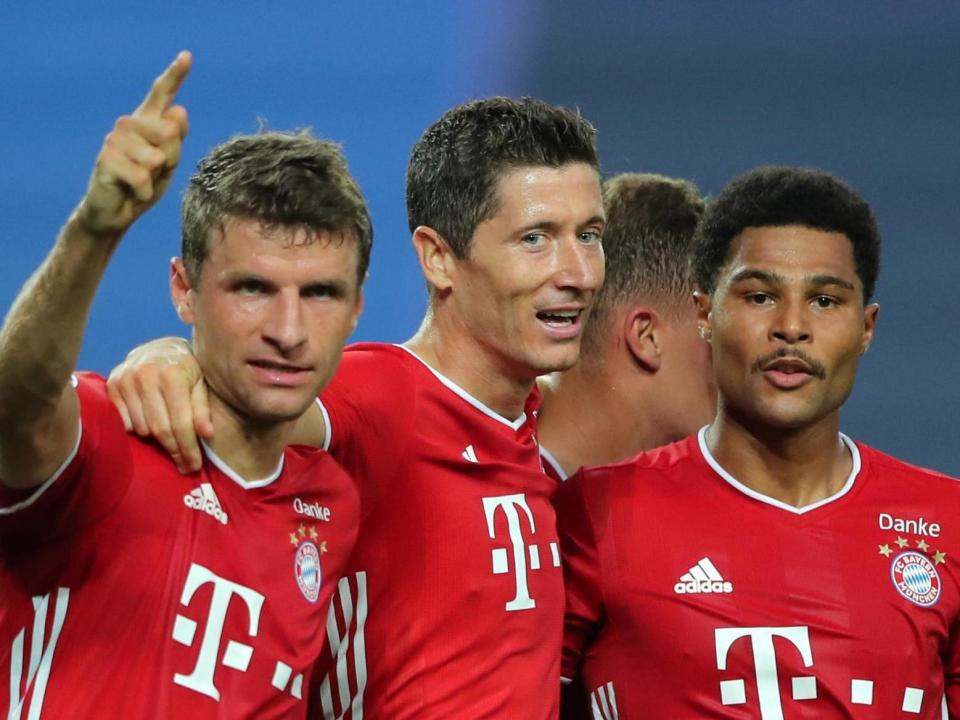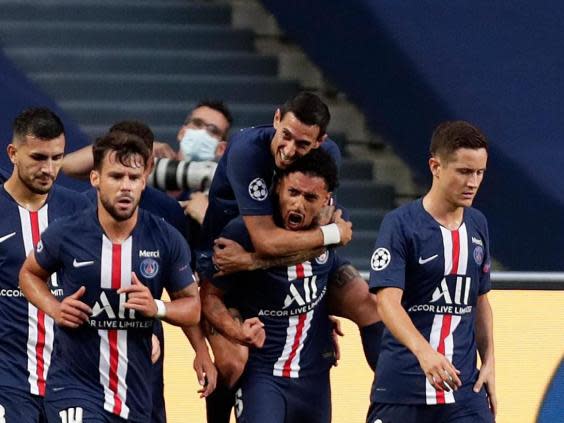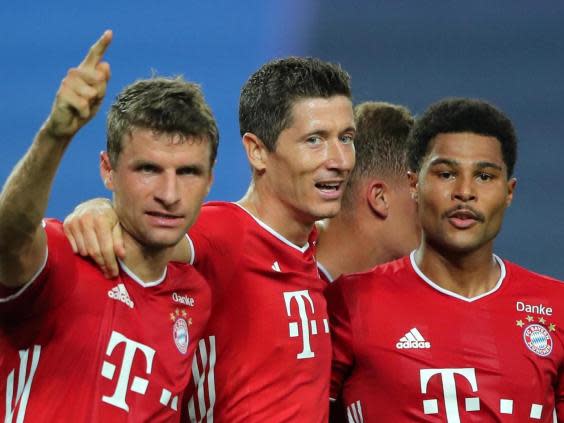Old money meets new as Champions League aristocracy in Bayern Munich face nouveau riche PSG

While David Beckham immediately loved playing for Paris Saint-Germain, some more recent players have never felt completely comfortable. One confided that it felt “more like a fashion house than a football club”. Their Qatari ownership has led to other descriptions.
Thiago Alcantara felt totally at home on arriving at Bayern Munich in 2013, but not in the way he expected.
“More than an international club, it’s a family club,” the midfielder told The Independent. “You can move about easily here, be friends with everyone that works at Sabenerstrasse.”
They are admittedly individual experiences, but point to a considerable difference between the clubs, that further shapes this final. It is almost the ultimate meeting of old money and new money in football.
Both are super-clubs, yes, but through very different sources. That goes way beyond the highly contrasting ownership structures. It runs right through the institutions.

While Bayern feel so lived in, as Thiago alluded to, PSG are all glossy new surfaces.
It would be wrong to say the French champions have no history, but it is still a relatively recent history, that has involved a few different incarnations and almost alternating eras.
They were only founded in 1972 as a merger between different clubs. A group of Parisian businessmen felt the city lacked a major team, and sought advice from Real Madrid president Santiago Bernabeu. The location naturally attracted major talent from the off like Safet Susic, Luis Fernandez and Dominique Rocheteau, something which has been a constant.
They still had to get promoted through the divisions in the first place, and there were early splits. The first decade of this millennium then saw the club become a basketcase, as they seemed to go from one crisis to the next.
The Qatari takeover that solved that was prefaced by another high-profile takeover in the early 90s, of the type that was distorting football back then. Canal+ followed the model introduced by Silvio Berlusconi in Italy with AC Milan, and bought out PSG. It brought that first truly stellar spell, involving Rai, David Ginola and - most famously of all - George Weah.

That side was one of the most memorable of the era, reaching the semi-finals of the 1995 Champions League before winning the 1996 Cup Winners Cup. Such feats do underpin their current wait for this grand trophy with a lot more heritage.
That said, beyond the illustriousness of the location, one of the reasons that PSG were so particularly suited to a takeover by a political project was because their identity has been so varied. That inherently made the perception of the club more malleable.
Such variances can be felt on matchday at Parc des Princes. The “fashion show” feel of the pre-game festivities, soundtracked by the Village People’s Go West and watched on by so many A-list celebrities, strikes such a contrast with the raucous supporter energy in the stands. It is aesthetics and aggression all at once. PSG do have a very defined ultra culture. That could be witnessed in the scenes of celebration around the stadium after the semi-final win over Leipzig.
There are similarities with the Bayern matchday experience in that way. You don’t get that customary big-club quiet at the Allianz Arena. Routine wins over Augsburg or Mainz are still roared on by cacophonous noise. They very much exemplify the German experience.
It is something else that appeals about Bayern. For all the damaging monopolisation of German football, and the grotesqueness of modern super clubs - you only have to look at their own sponsorship by Qatar - there are regular reminders they grew out of a community; out of a representation of people. You can feel it at a match.

When you walk around the Allianz, you can similarly feel the lineage the current club belongs too. They have obviously employed many of their legends as key figures, and you can see why they’re legends. There are so many signs of a glorious past.
Bayern are true aristocracy as regards Champions League history, about as high class as you can get. They were the third of only four clubs to achieve the gold standard of three European Cups in a row, to then win it twice more in two different eras. If they are victorious on Sunday, it will be their sixth Champions League, again making them the third most successful club in the competition’s history.
That is a status PSG would pay anything for. While they are playing their first ever final, Bayern have been involved in a sixth of those ever played.
And yet there are two sides to that, too. This is Bayern’s 11th final, but they have lost as many as they have won. Five victories have been offset by five defeats, with many of them coming in a cripplingly traumatic manner for a club of such arrogance. There were obviously the psyche-damaging late losses of 1999 in Camp Nou and 2012 in their own stadium, but they went alongside two other finals where Bayern were clearly the better side and squandered supreme form.

There are some possible parallels this season, given they go into the 2020 showpiece on better form than any other finalist in history ever has: 10 straight wins in the competition; 20 straight wins in all competitions; 29 games unbeaten.
Such excellence builds expectation, which brings pressure and a capacity for collapse. Bayern know this too well. It is one of many ways history can weigh on you.
PSG don’t have such history, but they thereby don’t have such baggage either. It could even be argued that the very feat of making the final has exorcised all of their own football traumas of the past few years, since most of those were related to failing to get to the semi-final in farcical fashion.
This is a new feeling for them. This is old ground for Bayern. It reflects the clubs’ identities. The contrast could yet play a part in who claims the identity of 2020 European champions.

 Yahoo Sport
Yahoo Sport 





































